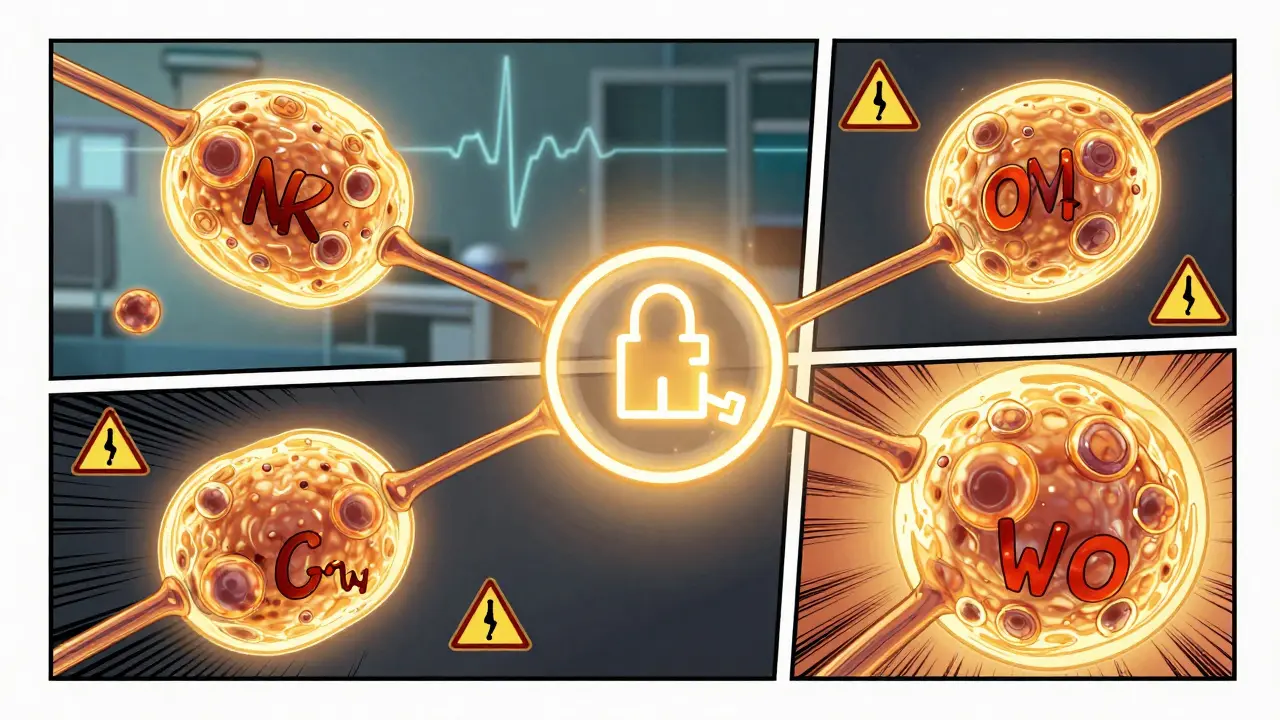Electrolyte disorders: what they are and why they matter
Electrolytes—sodium, potassium, calcium, magnesium and others—keep your muscles, nerves and heart working. When levels go too high or too low you can get cramps, confusion, palpitations or worse. These problems are common, and you don’t need fancy tests to spot a warning sign if you know what to look for.
Common causes and quick clues
Dehydration from heat, vomiting or diarrhea is an easy one to spot: dry mouth, dizziness, and dark urine. Diuretics (like furosemide) often lower potassium and magnesium, so watch for muscle cramps and weakness. Kidney disease can cause high potassium. Too much water or certain medicines can drop sodium and cause confusion or seizures. Other causes: heavy sweating, alcohol use, certain heart drugs (ACE inhibitors, spironolactone), and severe illness.
Spot check — symptoms tied to specific electrolytes:
- Low sodium (hyponatremia): nausea, headache, confusion, seizures in severe cases.
- High sodium (hypernatremia): extreme thirst, restlessness, low urine output.
- Low potassium (hypokalemia): muscle cramps, weakness, constipation, irregular heartbeat.
- High potassium (hyperkalemia): palpitations, muscle weakness; can be life-threatening—get urgent care.
- Low magnesium or calcium: twitching, numbness, spasms, and sometimes anxiety or insomnia.
What you can do right now (and what needs a doctor)
For mild issues: drink fluids with electrolytes—oral rehydration solutions or low-sugar sports drinks—and eat balanced salty foods if you’ve been sweating a lot. If you take diuretics or other meds, check with your doctor before changing dosages. Don’t self-prescribe potassium tablets without a blood test—too much potassium is dangerous.
If you have any of these, seek medical care: chest pain, fainting, severe weakness, confusion, or fast/irregular heartbeat. Doctors will order blood tests (basic metabolic panel) and often an ECG to check heart effects of potassium changes. Treatment ranges from oral supplements and fluid changes to urgent IV therapy in severe cases.
Want more help? We have practical posts on related topics—how diuretics affect electrolytes and safe alternatives, tips for older adults, and when to see a clinician. Read those if you’re managing long-term meds or recurring symptoms.
Electrolyte problems are usually fixable if caught early. Pay attention to how you feel, keep hydrated sensibly, and talk to your provider about medications that might be shifting your balance.
Managing Electrolyte Imbalances: Potassium, Phosphate, and Magnesium in Clinical Practice
- Robin Tudge
- December 18, 2025
- 11 Comments
Learn how to manage potassium, phosphate, and magnesium imbalances-critical for kidney and heart health. Understand the links between them, proper replacement protocols, and life-saving steps to prevent complications.
read moreAmiloride: Effective Management of Electrolyte Imbalances in Cancer Patients
- Robin Tudge
- September 8, 2024
- 15 Comments
Managing electrolyte disorders in cancer patients is vital for their overall health and well-being. Amiloride, a potassium-sparing diuretic, offers an effective approach for addressing such imbalances. This article explores how Amiloride can be used in the management of electrolyte disorders among cancer patients, discussing its benefits, potential side effects, and comparing it to other treatment options.
read more

